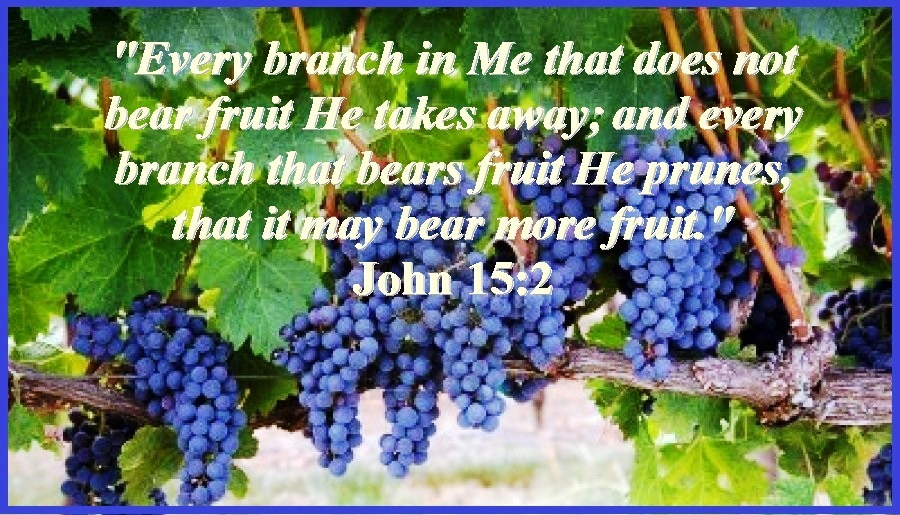Q. In John 15, what does Jesus mean by “fruit”? Can it mean making disciples?
A. The word “fruit” occurs 10 times in 7 verses in John’s writings:
- John 4:36 Already he who reaps is receiving wages and is gathering fruit for life eternal; so that he who sows and he who reaps may rejoice together.
- John 12:24 Truly, truly, I say to you, unless a grain of wheat falls into the earth and dies, it remains alone; but if it dies, it bears much fruit.
- John 15:2 Every branch in Me that does not bear fruit, He takes away; and every branch that bears fruit, He prunes it so that it may bear more fruit.
- John 15:4 Abide in Me, and I in you. As the branch cannot bear fruit of itself unless it abides in the vine, so neither can you unless you abide in Me.
- John 15:5 I am the vine, you are the branches; he who abides in Me and I in him, he bears much fruit, for apart from Me you can do nothing.
- John 15:8 My Father is glorified by this, that you bear much fruit, and so prove to be My disciples.
- John 15:16 You did not choose Me but I chose you, and appointed you that you would go and bear fruit, and that your fruit would remain, so that whatever you ask of the Father in My name He may give to you.
Many commentators relate fruit qualitatively as the “fruit of the Spirit” in Gal 5:22-23. This is certainly true in the sense that a disciple cannot bear the Spirit’s fruit unless he abides in Christ. However, I believe we can also interpret fruit quantitatively as “making disciples,” for two reasons:
- The word “fruit” itself implies reproduction, in the sense of “fruitful and multiply,” which occurs 11 times in the Bible (Gen 1:22, 28; 8:17; 9:1, 7; 17:20; 28:3; 35:11; Lev 26:9; Jer 23:3; Ezk 36:11).
- As John used the word in his gospel, he used it quantitatively (much fruit in Jn 12:24, 15:5, 8; more fruit in Jn 15:2).
No one can make disciples unless he/she abides in Christ, and the Father is glorified when we reproduce many disciples.
So my conclusion is that the Lord meant fruit in both a qualitative and quantitative sense, as in Christian character and making disciples.



